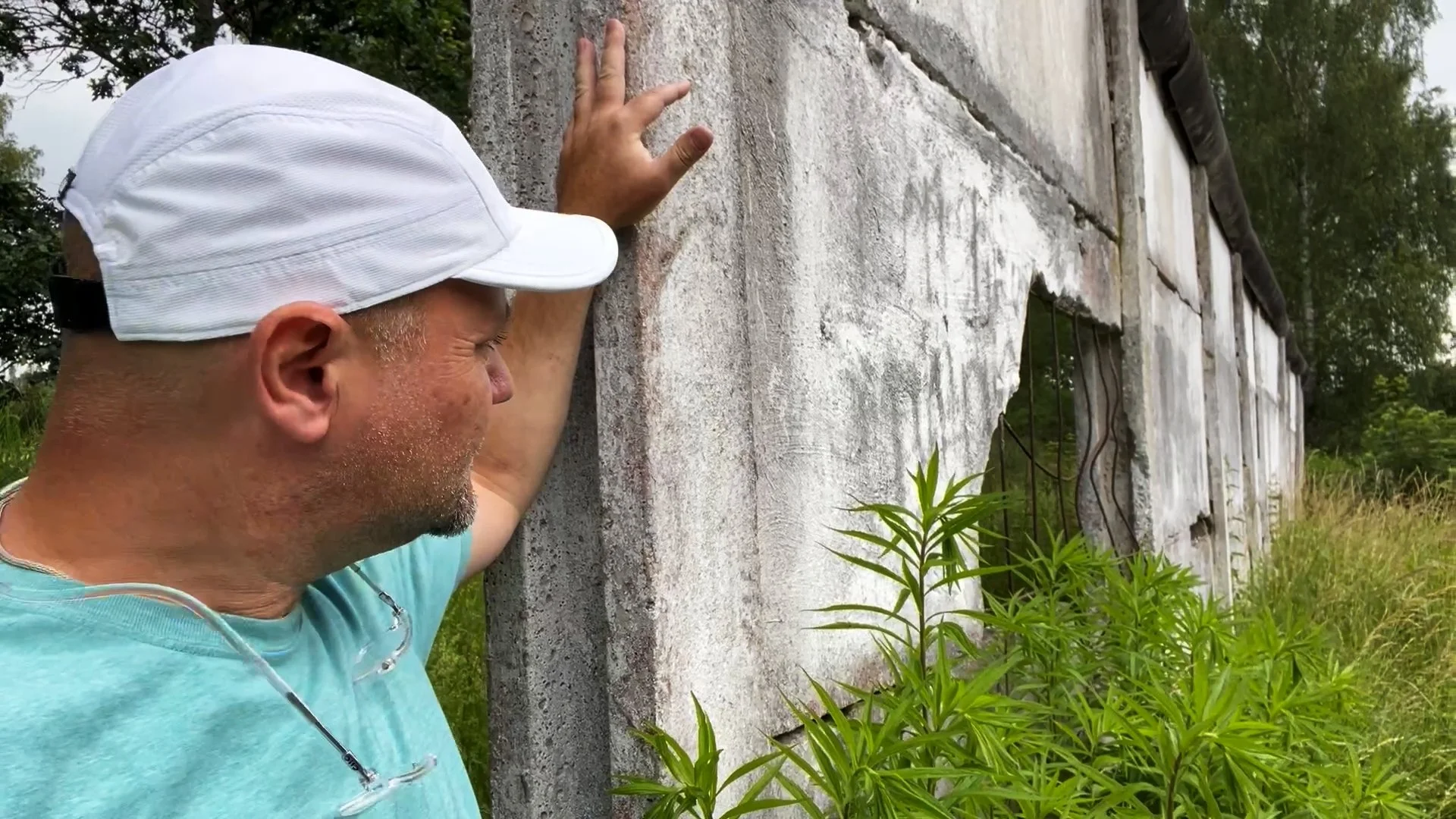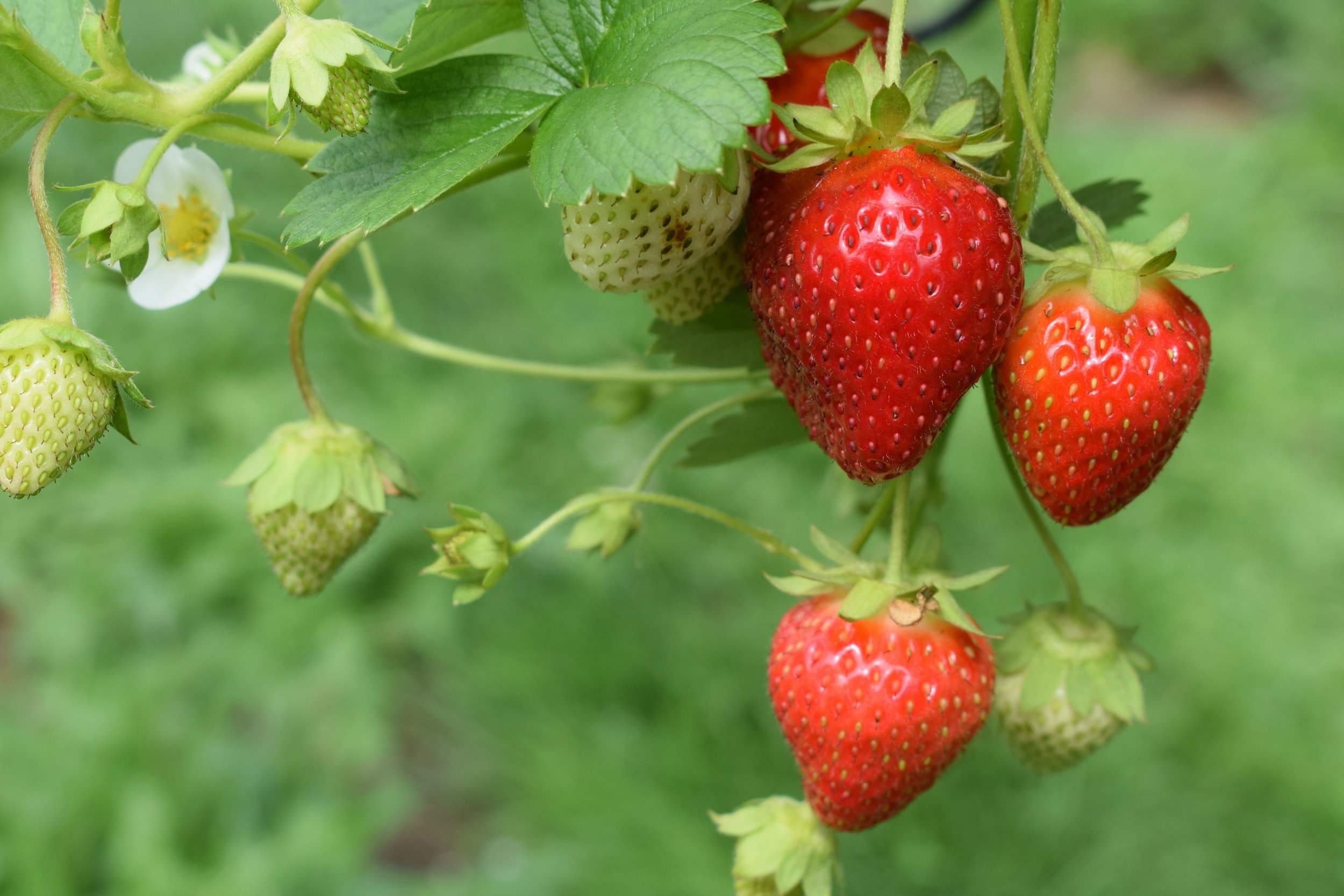Strawberries & Landmines
Memories of an East German Boy
Christoph reflects on his childhood playing near the inner-German wall
“What was it like to grow up in East Germany?”
I get that question all the time. Just the other day a close friend sheepishly confessed to me, “I am somewhat confused about this inner-German wall you talk about.”
Germany's inner border wall & Berlin's island
The concept of the Cold War was clear to him of course, but when it came to the separation of Germany, he only envisioned a wall in Berlin, the former capital and absolute symbol of the Cold War. Even the fact that West Berlin was an island within East Germany was a strange revelation. “I always wonder,” he said, “if The Wall separated East and West Berlin, why didn’t people just walk around it? You’re telling me it extended all along the East-West border? And you lived right next to it? What was that like?”
Since I don’t know how to answer this question without delivering a dissertation-like speech, or reverting to making a joke and not doing the question justice, I’ll share a story highlighting East German life:
Kinder on the communal Klo (toilet)
It’s 1984…Andy and I have been besties since 1975, the year a firm but kind childcare lady taught the cohort of us one-year-olds to pee on command right before regimented nap time. From that day on we did everything together. The system prescribed the school routine and the afternoons were dedicated to doing as many stupid things as possible. In a society of zero unemployment, all adults were locked away in factories until late afternoon. In short, it was heaven.
One fine summer weekend Andy concocted a brilliant plan to escape boredom and to go on an overnight adventure. “You tell your mom we are camping in my garden, and I tell my mom I am staying at your place for the weekend! Pump up your bike! I will bring provisions. I’ll tell you more later, but be prepared to eat a lot of strawberries,” he said. What can I say, it was the 80s, hence, a brilliant approach to initiate some freedom for us! Oh, and did he say strawberries?
Opening the Westpaket
Andy was special. His connections to West German relatives resulted in his Westpaket—care packages—being filled with chocolate, cigarettes and coffee. My connections to the West however only resulted in used clothes, the former being the currency of the gray market. Andy was always a little better off, a difference that translated right down to our bikes. As we took off, he was flying into the wind with a newer bike that had three (!!) gears, and mine was a steel stallion, one of those 1950s women’s bikes. It was my mother’s, and luckily, I was able to commandeer it out of our cellar without her noticing. And we were off to… a destination not known to me yet.
Going southeast for seven kilometers we were on familiar territory, as it was the same commute to the one and only public swimming pool. East Germans had a lot of time to kill, and lakes and public pools were well attended. It was a true swim and hangout culture. Overpriced and rare to find cassette tape players would play American and Western music illegally grabbed off the West German airwaves that permeated this part of East Germany. We were close enough for their “propaganda” to reach us, and glad for it.
In the village with the pool Andy takes a left, away from the destination with cool water and older girls that won’t even look at me. I whistle and Andy finally screeches to a halt. “Hungry?” he asks. Andy always came with provisions. I didn’t know Paddington the Bear at that point in time, but Andy was like him. He always seemed to have a jam sandwich hidden somewhere. Chewing on Broetchen and Knacker – bread rolls and local salami that Andy had found in his cold storage at home, I finally got to my question: “Where are we going?” Andy smiles and answers, “To the best place ever: my Oma’s house in Roth.”
Roth is located in the Sperrgebiet, the restricted zone lining the border to West Germany. There is an 870-mile band of borderline between East and West Germany, heavily guarded and militantly restricted. The two of us are almost two kilometers away from the West, only two kilometers away from blue jeans, bubble gum, chocolate, fancy coffee, and… Coca Cola! Suddenly, the adventure gets real!
Clear-cut scars from inner-German wall form a "green belt"
German village split by the inner-German wall
Andy’s lunch spot happens to be right before the end of the village’s last stone wall. He cocks his head down the road and my eyes follow it to a little booth and barrier. The bar is up. Open to pass. “This is what we’ll do,” Andy says. “You see those two guards down there?” Obviously, I see them, and their machine guns. “I will ride in front of you, nod to the guards,” he explains his plan, almost whispering. “You, however, don’t make eye contact. If we get to pass, we will eat strawberries soon.”
I told you Andy was food motivated, right? So we go, wheels rolling closer to the two-kilometer mark, closer to the bar that stays up, closer to the guns. Andy rides by with a confident “Guten Tag!” for the guards. I follow on my girl-bike, trying to look at anything but the faces of the guards. With relief, no “Halt, oder wir schießen! – Stop, or we shoot!” echoes behind me. 250 yards later of which I remember nothing, and we take a left toward Roth. We did it!
Erdbeeren (strawberry) Lust
Even though we can already see Andy’s Oma’s house and farm, the sight of the largest strawberry field I have ever set my eyes on pulls us off our bikes. Plump, huge, ripe strawberries is all we can think of for the next hour. Our Konsum – the village store, always has lines if goods come in. If Andy and I are lucky, we see one banana a year. Same for strawberries. We do get them here and there, but not the good stuff. Often we have to remove a few moldy ones. Now here, in the no-mans-land of the Sperrgebiet, is where they hide the strawberry fields? Of course, it dawns on me, if they were growing in the potato fields behind my village, we would steal our way to bellies full of strawberries!
Kolonnenweg lined with landmine fields
As we approach the Hof – farm, a surprised, happy grandmother takes Andy in her arms. “I made cake, and I didn’t even know you were coming!” she says. So this is where Andy’s love for food comes from! Without introduction, Oma also takes me in her arms. In East Germany, family can easily spill over, beyond bloodlines. A few obligatory kisses and face pinches later and I feel like being home. “Oma?” I asked the woman who is now my Oma too, “There are so many strawberries in those fields, can we help this weekend with the harvest?” imagining every third strawberry I pick could end in my belly. “Oh,” she says with no special intonation, “We don’t let people in there. Our harvesters know the dangers. You know, because of the landmines.” Andy and I look at each other’s strawberry-stained faces, he shrugs, then we both smile. I see it in his eyes: “Brilliant adventure!” they say.
What follows is a weekend of Rouladen, pigeons, Kloesse – potato dumplings famous beyond our region, and of course, more strawberries, this time delivered by Oma. For two days I get to stare directly at the final barrier between me and the West. I find myself dreaming at the hills beyond the wall, wondering what life is like over there. Is it really like the commercials I see while illegally watching West German TV? We see the patrols drive by on the Kolonnenweg, a road that follows all of the 870 miles allowing the guards to be at any point at any time, always at the ready. Them and the sweet danger of the strawberry field, always there.
Today the Wall has been gone longer than it was ever up. We have found some distance to our past. There are many things my grandparents and parents never shared with me as a child, part to protect me, part to protect themselves. Likewise, it never occurred to me to tell them of our forbidden journey. I knew I would be in trouble for entering the Sperrgebiet and picking strawberries in mine infested fields, but a potential punishment wasn’t so much the issue. It was my little East German secret.
The Staatssicherheit - aka Stasi, knew everything. With spies everywhere, they didn’t need to hear about our daring weekend. What if Andy and I would want to do it again? What if one day would come and we would attempt more?
Many years after the fall of the Wall some secrets saw the light of day. I learned that my grandfather was imprisoned by the Stasi for eight years. I learned that another of my best friends attempted an escape in 1988 and disappeared behind thick walls of a youth incarceration facility. Another friend who knew of his plans was taken by the Stasi and shown where our buddy ended up—to deter him of similar thoughts. Andy’s parents plotted an escape in the summer of 1989 and successfully made it to West Germany through Hungary. He didn’t know that his vacation on Lake Balaton would end in him being on the other side of the very wall we stared at in 1984. Secrets, I guess, and the yearning to one day see the other side, the West, are part of life of an East German that are hard to express in a short answer to the question of how it was to grow up in East Germany.









